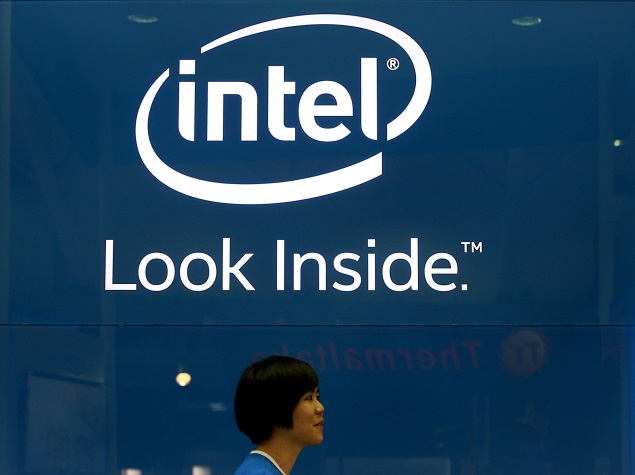- Home
- Wearables
- Wearables News
- Intel Explores Wearable Devices for Parkinson's Disease Research
Intel Explores Wearable Devices for Parkinson's Disease Research

Intel Corp plans to use wearable gadgets such as smart watches to monitor patients with Parkinson's disease and collect data that can be shared with researchers.
On Wednesday, the chip maker said it is teaming up with the Michael J. Fox Foundation, established by the actor and Parkinson's sufferer in 2000, to conduct a multi-phase research study of the neurodegenerative brain disease. An estimated five million people globally have been diagnosed with Parkinson's, the second-most-common neurudegenerative disease after Alzheimer's.
The initial goal is to determine the feasibility of using wearable devices to monitor patients remotely and store that data in an open system that can be accessed by scientists.
In the next phase of the study, which will likely kick off in the fall, the foundation will set aside funds to explore how patients are responding to medication. Participants will be monitored via an array of wearable devices.
"As more of these devices hit the market, we can collect objective measurements and determine the efficacy of new therapeutics," Sohini Chowdhury, a senior vice president for research partnerships at the foundation, told Reuters.
Clinical trials have been far too "subjective" in the past, she said. For instance, a patient might inform her doctor that she felt a tremor for several minutes, when it actually lasted a matter of seconds. In the future, Chowdhury hopes patients and their doctors will have more precise measurements via wearable devices about the "frequency and severity" of symptoms.
Chowdhury said the foundation will continue to raise funding to cover the costs of providing wearable devices to patients.
By using such devices, the foundation and other research groups can tap into a broader pool of patients for clinical trials, Chowdhury said. Today, many people with Parkinson's disease are unable to participate in clinical trials because they do not live near a research facility.
But wearable devices offer a convenient way to track patients from their work or homes, allowing people in the most rural parts of the country to participate.
As it expands beyond the PC arena, Intel hopes to capture a share of the growing market for big data analytics and wearable devices in the health sector. Ron Kasabian, general manager of Intel's Big Data Solutions group, said the data center and "Internet of Things" business units are exploring the sector.
"We're exploring how to pull data out of devices in real-time," he said. "We can mine data to improve research, and better understand the behaviors and progression of the disease."
While Intel boasts its own wearable technologies, Kasabian stressed that the Parkinson's study is device agnostic, meaning patients can test a variety of wearable gadgets. In March, Intel completed its acquisition of Basis Science, a startup that is best known for its wrist-band that measures the wearer's heart rate.
Intel expects to extend similar programs to related areas of health care, as well as other industries, including manufacturing.
© Thomson Reuters 2014
For the latest tech news and reviews, follow Gadgets 360 on X, Facebook, WhatsApp, Threads and Google News. For the latest videos on gadgets and tech, subscribe to our YouTube channel. If you want to know everything about top influencers, follow our in-house Who'sThat360 on Instagram and YouTube.
Related Stories
- Samsung Galaxy Unpacked 2025
- ChatGPT
- Redmi Note 14 Pro+
- iPhone 16
- Apple Vision Pro
- Oneplus 12
- OnePlus Nord CE 3 Lite 5G
- iPhone 13
- Xiaomi 14 Pro
- Oppo Find N3
- Tecno Spark Go (2023)
- Realme V30
- Best Phones Under 25000
- Samsung Galaxy S24 Series
- Cryptocurrency
- iQoo 12
- Samsung Galaxy S24 Ultra
- Giottus
- Samsung Galaxy Z Flip 5
- Apple 'Scary Fast'
- Housefull 5
- GoPro Hero 12 Black Review
- Invincible Season 2
- JioGlass
- HD Ready TV
- Laptop Under 50000
- Smartwatch Under 10000
- Latest Mobile Phones
- Compare Phones
- Redmi Turbo 4
- Vivo Y200+
- Lava Yuva 2 5G
- OnePlus Ace 5
- OnePlus Ace 5 Pro
- Oppo A5 Pro 5G
- Vivo Y29 5G
- Honor Magic 7 RSR Porsche Design
- Asus Zenbook S 14
- MacBook Pro 16-inch (M4 Max, 2024)
- Honor Pad X9 Pro
- Honor Pad V9
- boAt Enigma Gem
- boAt Enigma Daze
- Sony 65 Inches Ultra HD (4K) LED Smart TV (KD-65X74L)
- TCL 55 Inches Ultra HD (4K) LED Smart TV (55C61B)
- Sony PlayStation 5 Pro
- Sony PlayStation 5 Slim Digital Edition
- Blue Star 1.5 Ton 3 Star Inverter Split AC (IC318DNUHC)
- Blue Star 1.5 Ton 3 Star Inverter Split AC (IA318VKU)

















